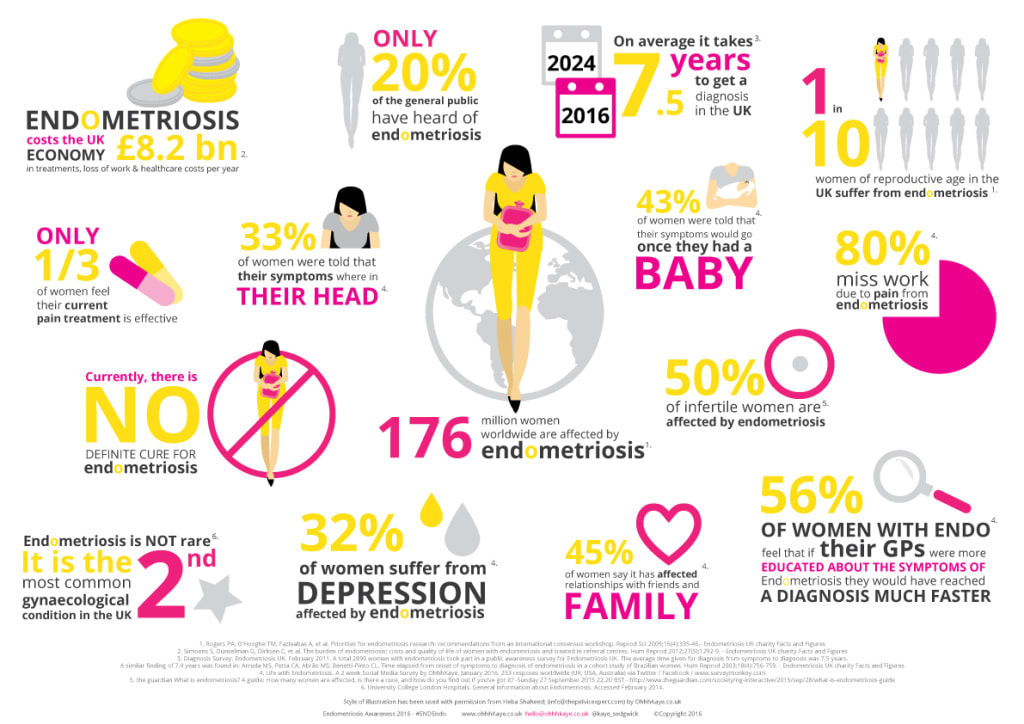Hysterectomy and the "Hysterical" Woman
How Medicine Has Failed Women

Hysterectomy is a word that often strikes fear in the heart of a woman. It is plagued with a history of heartbreak and pain and even now isn't something taken lightly by many. The word hysteria and that of hysterectomy are not coincidently coordinated, but are stemmed from something that was one in the same. Women who were considered to be emotionally unstable were considered "hysterical," and in order to cure their hysteria, they were often put into asylums. Some of these places put women through a procedure that removed what they believed was causing all their emotional distress—the uterus. Thus the surgical term for hysterectomy was born and paved the way for many medical shortcomings for women for years to come.
Female health is so misunderstood that most women don't understand their own bodies. It took having severe issues with my pelvic floor to even realize there was such a thing as a pelvic floor. The problem with medical care for women is that many are told that, much like "hysteria," their pain, emotions, and sickness is all a result of being a woman. If you have debilitating cramps? That's "normal." Can't stop bleeding? You aren't anaemic so it is fine. Too much pain to get out of bed? Take some painkillers. The answers are often short because there is so little funding provided to woman's healthcare research. For example, the US government provided one dollar for Endometriosis research last year. That is less than a chocolate bar. Endometriosis affects one in ten women and yet it has remained untreated and uncured for years. Women are tossed pain meds and birth control, multiple surgeries, and broken promises of a better quality of life. That is, of course, if you are one of the women that get diagnosed after going to see doctors for seven to ten years with no diagnoses.
A debilitating chronic illness that affects one in ten women within this country is provided less research money than candy. On top of this, there are only two hundred and thirty pelvic and women's health physical therapists in the entire United States. Many women, like myself, have suffered such severe pain, their muscles need help being retrained. The issue is so misunderstood, however, that many physical therapists turn to more well-known specialities while the demand for pelvic physical therapists is only getting higher.
My mother once told me that when she began to suffer from Fibromyalgia, a painful nerve condition, every doctor told her she was just depressed. It had to just be in her head; the pain couldn't exist. The truth was, it did. With the proper medication, she is now able to manage it, but it took five years of torment for her to find help. In our long talks on the way to one of my many specialists, we discussed how different it was for women than men in terms of healthcare. My father enters a hospital and gets admitted, I am passing out in the ER from pain and they take three hours to give me medication because a pregnancy test hadn't been processed yet. One look at my chart would prove that it is impossible for me to get pregnant. I am twenty one and in medical menopause.
It is a battle to find care as a woman because there is still a stigma that we are weak. Yet it is the contrary. We are told that pain is our cross to bear every month and that it is "normal," so we take it up and carry on with school, work, families, and life itself. We are not hysterical in our pain or sickness, we are crying out for reform. The younger generation deserves to know that a painful period isn't normal and no doctor should tell them otherwise. We are not hysterical and it is high time the medical system stops treating us like we are.
About the Creator
Becca Volk
Becca is a chronically-ill lady, writes on health, humanity, and what it truly means to be alive. She invites you into her unique world, and the imagination, that comes with being stuck in bed. The world may be still, but words keep moving.






Comments
There are no comments for this story
Be the first to respond and start the conversation.